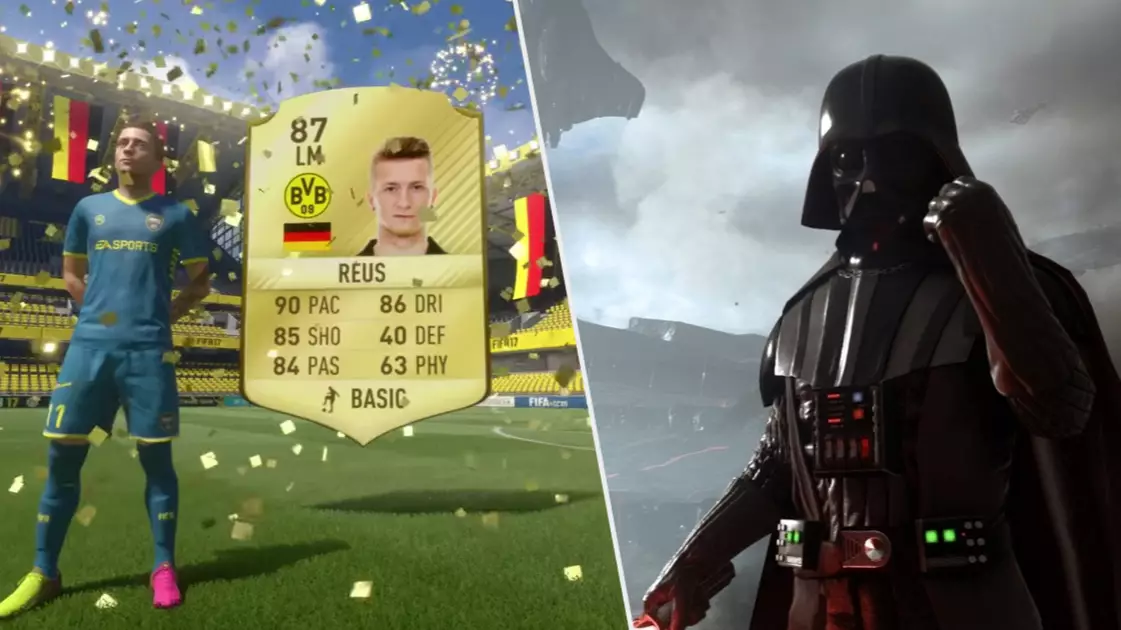
The UK government is facing fresh calls to classify loot boxes in video games as a form of gambling. This comes as the result of a new report titled "Gaming The System", which was published today.
In this 37-page document, Children's Commissioner for England Anne Longfield joins the growing number of voices calling for greater regulation when it comes to microtransactions and loot boxes, arguing that authorities need to include loot boxes in gambling legislation and that developers should introduce daily spending limits to mitigate massive sums of money being dropped.
"Children have told us they worry they are gambling when they buy loot boxes, and it's clear some children are spending hundreds of pounds chasing their losses," Longfield explains. "I want the government to classify loot boxes in games like FIFA as a form of gambling."

Gaming The System comes just weeks after the Department of Digital, Culture, Media and Sport published their own 84-page report detailing the findings of a nine-month long inquiry, which was based on evidence from various developers, academics, and trade bodies.
Advert
The committee included a number of examples that argue the damage microtransactions in games can do if left unregulated, with the popular online fantasy adventure RuneScape being called out in one notable part of the report which details "a member of the public whose adult son built up considerable debts, reported to be in excess of £50,000" in the online game, causing "significant financial harm for both the player and his parents."
Weeks later, Kotaku reported on a gamer who'd managed to spend around $150,000 in a mobile Transformers game called Transformers: Earth Wars. According to the CEO of the games publisher, those willing to spend that much money on microtransactions are referred to as "whales."

Longfield's report reasons that gaming itself doesn't cause any kind of harm to kids, and admits that online gaming can actually reinforce social bonds and strategic skill development, despite what some would try and have us believe.
Advert
Instead, Longfield argues that the problem lies in the way developers and publishers are increasingly looking into ways to encourage users to dump more and more money via potentially exploitative cash grab systems.
In the case of the aforementioned Transformers: Earth Wars, for example, the publisher's CEO argued that monetisation should be baked into the game's design from the very beginning, and not added afterwards. RuneScape, meanwhile, is facing fresh criticism for including options that allow players to pay more money in exchange for certain advantages.
"At this point, it's no longer pay-to-play. It's pay-to-pay," said one commenter on the game's subreddit

In her report, Longfield suggests that offering advantages in exchange for money puts a certain social pressure on youngsters - lest they fall behind their mates in whatever game they happen to be into at the time.
Advert
The report cites several kids who actually feel concern over what they see as a developing gambling habit, including a 14-year-old FIFA player who admits that they "never get anything" out of buying the Ultimate Team packs, but still does it.
Longfield's conclusions and recommendations aren't dissimilar to the Department of Digital, Culture, Media and Sport. Both essentially argued that any games with loot boxes should come with a gambling content warning label, as well as an appropriate age warning from PEGI.
A spokesperson for the government responded, saying "We will carefully consider the concerns raised in this report in relation to excessive or gambling-like behaviour". Somehow I get the feeling they don't really mean that right now.
Featured Image Credit: EA